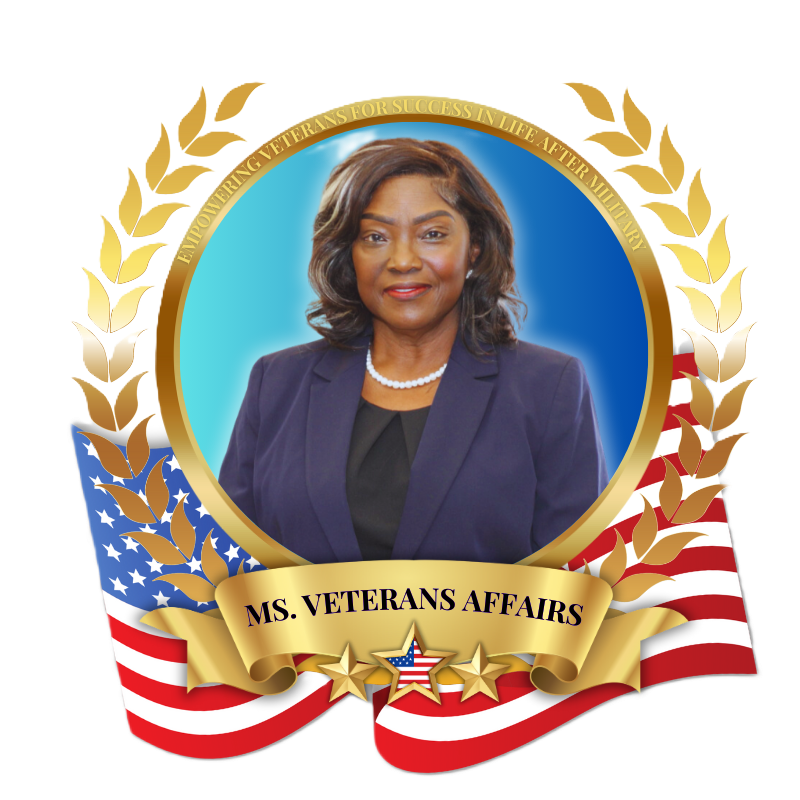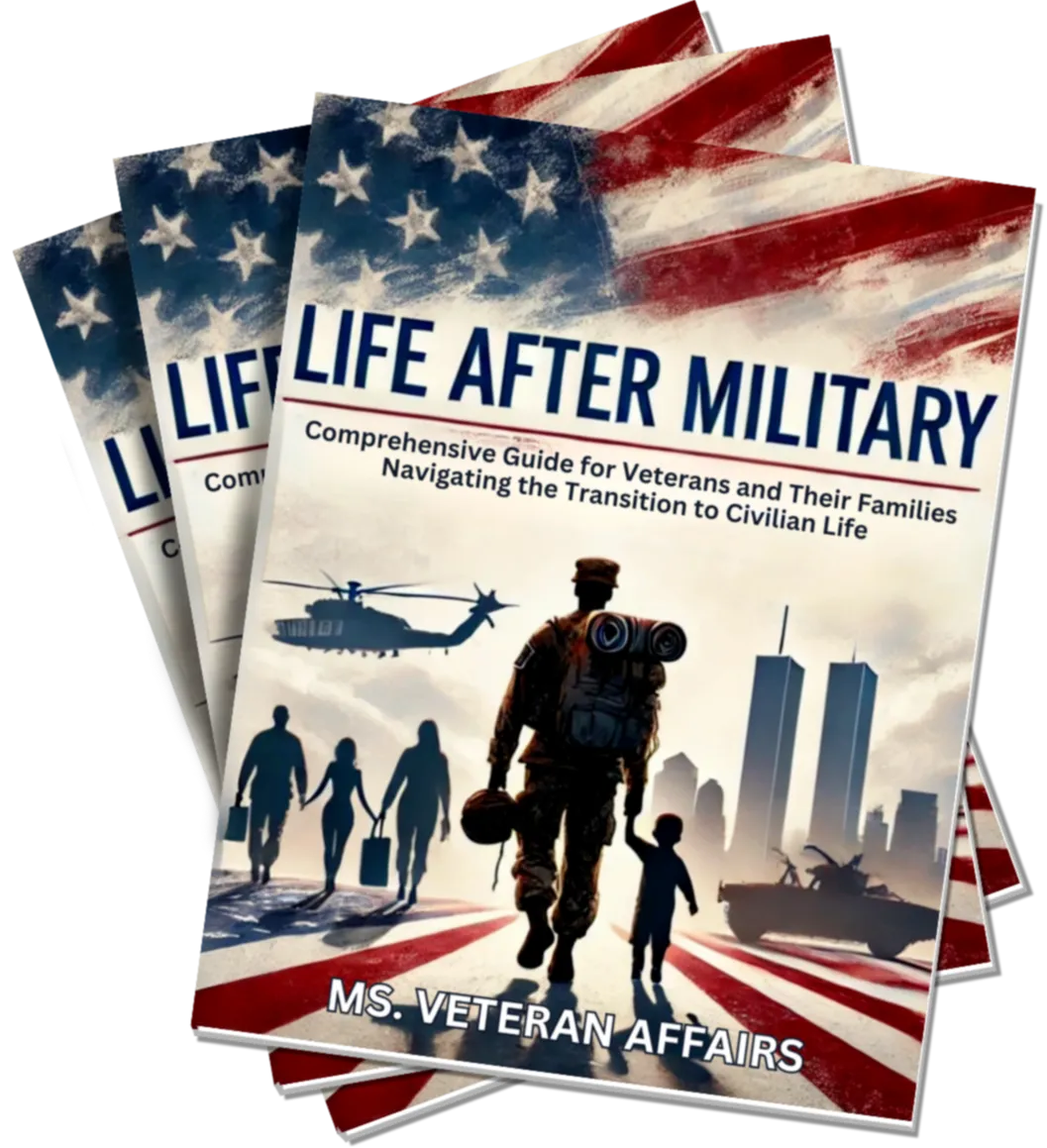How Veterans Can Break into STEM Careers After Service
Apr 29, 2025
 Ms. Veteran Affairs Explains How Veterans Can Break into STEM Careers (Veterans to Work)
Ms. Veteran Affairs Explains How Veterans Can Break into STEM Careers (Veterans to Work)
Jamal sat across from Ms. Veteran Affairs, a sense of unease settling in his stomach. He had just come from a job fair where he’d felt out of place—like a square peg in a round hole. He had been trying to figure out what his next step was after his military service, but the civilian world felt overwhelming and foreign. The bright lights of the fair, the polished resumes, and the sea of professionals in their suits left him feeling small and unqualified. He had expected to find a path that felt familiar, but instead, he was confronted with the uncomfortable truth that his skills didn’t seem to translate to the roles he was seeing.
“Ms. Veteran Affairs, I’m just not sure if I’m cut out for this,” he admitted, his voice low. “I’ve heard a lot about STEM careers—science, technology, engineering, and math—but I don’t even know where to begin. My experience in logistics doesn’t exactly scream ‘tech expert.’”
Ms. Veteran Affairs studied Jamal, her expression calm but filled with understanding. She’d seen this exact scenario before. Transitioning out of the military was no small feat, and the fear of not knowing where you belong in the civilian workforce was something she could relate to.
“You’ve got a lot more to bring to the table than you think, Jamal,” she said, leaning forward. “The thing with STEM careers is that they’re not just for people who’ve studied computer science or engineering. In fact, veterans like you—who’ve developed problem-solving skills, learned to manage complex logistics, and have experience working under pressure—are exactly what many STEM companies are looking for.”
Jamal frowned. “But my background’s in logistics. I don’t even know how to translate that into something like data analysis or software development.”
Ms. Veteran Affairs smiled. “That’s where you’re wrong. What you don’t realize is that your military experience is packed with transferable skills that will set you apart in a STEM job. Let me break it down for you.”
Identifying Transferable Skills
“Take logistics for example,” Ms. Veteran Affairs continued. “In the military, you were tasked with coordinating supplies, managing inventory, and ensuring things moved smoothly under pressure. Those are problem-solving skills that companies in tech or engineering need. Logistics is all about data—tracking, analyzing, and optimizing. Those skills are directly transferable to roles in data analysis, project management, and even supply chain management in the private sector.”
Jamal’s eyes widened slightly. “I never thought about it like that.”
“Exactly,” Ms. Veteran Affairs replied. “And let’s talk about leadership. You’ve had to manage teams, make decisions on the fly, and keep everything on track. In any STEM career, those leadership and decision-making skills will serve you well.”
Jamal felt a bit lighter. He had always thought of his time in the military as a stepping stone to his future, but now, he could see how his background could be a bridge into a field that interested him.
Exploring Education and Certifications
“Now, I know you’re thinking about education. It’s a big piece of the puzzle,” Ms. Veteran Affairs said, noticing Jamal’s skeptical expression. “But let’s make it clear: you don’t have to go back to school for four years to land a job in STEM. There are plenty of certification programs that are veteran-friendly and cost-effective, like coding bootcamps or project management certifications.”
Jamal nodded, considering this. “That sounds more manageable. But I’m still not sure where to start.”
“That’s the beauty of it,” Ms. Veteran Affairs said. “Start with what you know. You’ve worked with technology in the military, even if it wasn’t the kind of tech you’re imagining now. Certifications in software development, data analysis, or IT support could be the perfect first step. And the best part? The GI Bill can help fund these programs.”
Building a Network in STEM
Ms. Veteran Affairs continued, “Networking is crucial. You’ve got an advantage here—military connections. Don’t underestimate the power of the veteran community. There are organizations like Vets in Tech or Hiring Our Heroes that help veterans connect with companies looking to hire. Reach out to them and start building your network.”
“I didn’t think of that,” Jamal admitted. “I guess I’ve been too focused on the technical skills and not enough on the people who can guide me.”
“That’s a common mistake,” Ms. Veteran Affairs said. “But the connections you make will help you just as much as the skills you learn.”
Utilizing Veterans’ Resources
“Another resource you shouldn’t overlook is job fairs,” Ms. Veteran Affairs said. “These are specific events for veterans and military families, and many of them focus on STEM careers. They’re a great way to meet employers, get feedback on your resume, and even land interviews.”
Jamal’s posture shifted as he considered the possibilities. “That sounds like something I can do.”
Navigating the Civilian Job Market
“Lastly, let’s talk about your resume,” Ms. Veteran Affairs said. “You’re going to need to make sure it speaks the language of civilian employers. Military terms can be hard for people outside of the service to understand, so it’s important to reframe your experience. For example, instead of saying ‘Logistics Coordinator,’ you could say ‘Supply Chain Specialist.’ Focus on the skills you used, like data management or process improvement, and how those can apply to a civilian job.”
Jamal felt a sense of confidence beginning to build. “I can do that. I’ve got the skills; I just need to put them into a language that makes sense to others.”
“Exactly,” Ms. Veteran Affairs said, giving him an encouraging smile. “And with all the resources at your disposal, the right education, and your network of fellow veterans, you’ve got everything you need to break into STEM. It’s about applying what you already know, learning a little more, and making those connections. You’ve got this.”
Jamal stood up, his mind racing with the new direction he was now considering for his future. He wasn’t just a veteran anymore—he was a veteran on his way to a career in a high-demand field. And with Ms. Veteran Affairs’ guidance, he had a clear roadmap to follow.
“I appreciate this, Ms. Veteran Affairs,” he said with newfound conviction. “You’ve made it seem possible. I’m going to take these steps seriously.”
“You’re welcome, Jamal,” Ms. Veteran Affairs replied with a warm smile. “The journey may not be easy, but the rewards will be worth it. And remember—every step you take is a step toward a new beginning.”
Discussion Questions:
- What are some of the transferable skills from military service that could be applied to a STEM career? How can veterans identify these skills in their own experiences?
- How can certifications and bootcamps be a practical way for veterans to break into STEM fields? Do you think this approach is more accessible than traditional four-year degrees?
- Why is networking such a crucial element of a successful transition to civilian life and a STEM career? How can veterans leverage their military connections to their advantage?
- What are some challenges veterans might face when translating their military experience to a civilian job market? How can they overcome these challenges when crafting their resumes?
- In your opinion, what role do organizations like Vets in Tech and Hiring Our Heroes play in helping veterans transition to civilian careers? How can veterans make the most of these resources?
Join our community today!
Gain fresh insights every week—concise, impactful lessons designed to elevate your thinking, enhance self-awareness, and empower purposeful growth.
We hate SPAM. We will never sell your information, for any reason.












